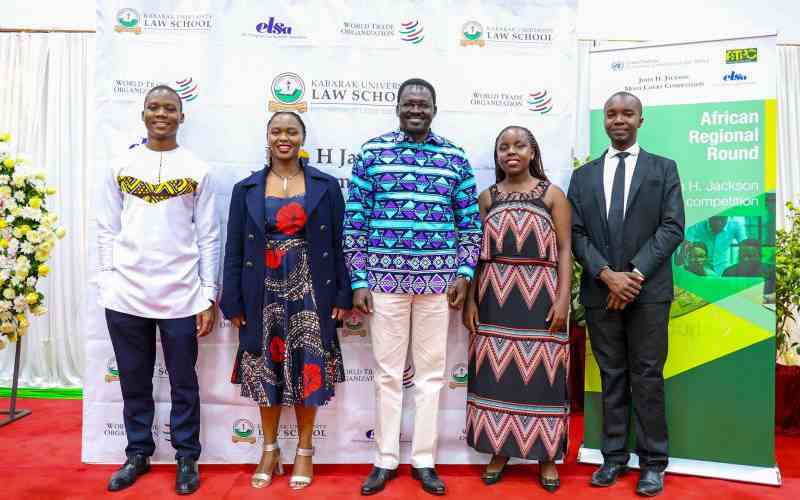×
The Standard e-Paper
Home To Bold Columnists

Kabarak University VC Prof Henry Kiplagat with Kabarak University students who emerged second in the John H Jackson moot competition on April 21, 2024. [Kipsang Joseph, Standard]
Law students from Kabarak and Strathmore Universities will represent Africa in the world John H. Jackson Moot Court competitions in Geneva, Switzerland in June 2024.